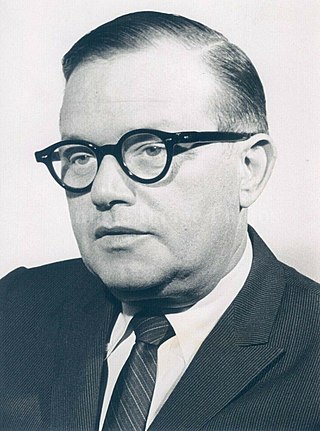
Jule Styne was an English-American songwriter and composer widely known for a series of Broadway musicals, including several famous frequently-revived shows that also became successful films: Gypsy,Gentlemen Prefer Blondes, and Funny Girl.

Hello, Dolly! is a 1964 musical with lyrics and music by Jerry Herman and a book by Michael Stewart, based on Thornton Wilder's 1938 farce The Merchant of Yonkers, which Wilder revised and retitled The Matchmaker in 1955. The musical follows the story of Dolly Gallagher Levi, a strong-willed matchmaker, as she travels to Yonkers, New York, to find a match for the miserly "well-known unmarried half-a-millionaire" Horace Vandergelder.

Carol Elaine Channing was an American actress, comedian, singer and dancer who starred in Broadway and film musicals. Her characters usually had a fervent expressiveness and an easily identifiable voice, whether singing or for comedic effect.
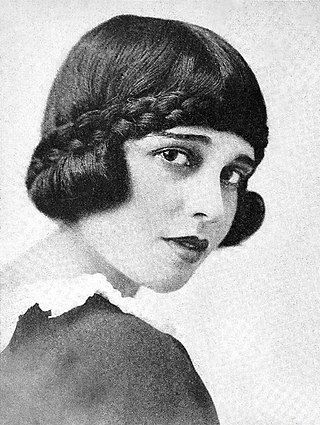
Corinne Anita Loos was an American actress, novelist, playwright and screenwriter. In 1912, she became the first female staff screenwriter in Hollywood, when D. W. Griffith put her on the payroll at Triangle Film Corporation. She is best known for her 1925 comic novel, Gentlemen Prefer Blondes, and her 1951 Broadway adaptation of Colette's novella Gigi.

Gentlemen Prefer Blondes is a 1953 American musical comedy film directed by Howard Hawks and written by Charles Lederer. Based on the 1949 stage musical of the same name, it stars Jane Russell and Marilyn Monroe, with Charles Coburn, Elliott Reid, Tommy Noonan, George Winslow, Taylor Holmes and Norma Varden in supporting roles.

Leo Robin was an American composer, lyricist and songwriter. He is probably best known for collaborating with Ralph Rainger on the 1938 Oscar-winning song "Thanks for the Memory," sung by Bob Hope and Shirley Ross in the film The Big Broadcast of 1938, and with Jule Styne on "Diamonds Are a Girl's Best Friend," a song whose witty, Cole Porter style of lyric came to be identified with its famous interpreter Marilyn Monroe.
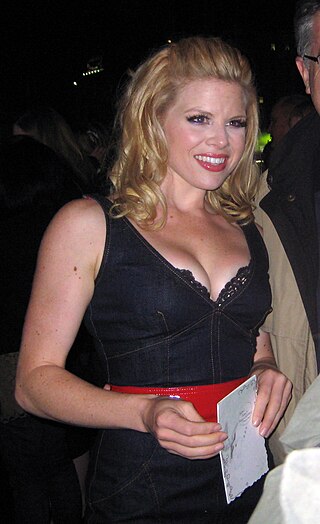
Megan Kathleen Hilty is an American actress and singer. She rose to prominence for her roles in Broadway musicals, including her performance as Galinda in Wicked, Doralee Rhodes in 9 to 5: The Musical, and her Tony Award–nominated role as Brooke Ashton in Noises Off. She also starred as Ivy Lynn on the musical-drama series Smash, on which she sang the Grammy Award-nominated "Let Me Be Your Star", and portrayed Liz on the sitcom Sean Saves the World.
The Lorelei is a rock in the Rhine River, the subject of numerous legends, poems, and songs about maritime disaster.
"Diamonds Are a Girl's Best Friend" is a jazz song introduced by Carol Channing in the original Broadway production of Gentlemen Prefer Blondes (1949), with music by Jule Styne and lyrics by Leo Robin.
Rachel York is an American actress and singer. She is known for stage roles in City of Angels, The Scarlet Pimpernel, Les Misérables, Victor/Victoria, Kiss Me, Kate, Sly Fox, Dirty Rotten Scoundrels and Anything Goes. She also has many film and television credits, including her portrayal of Lucille Ball in the CBS biographical film Lucy.
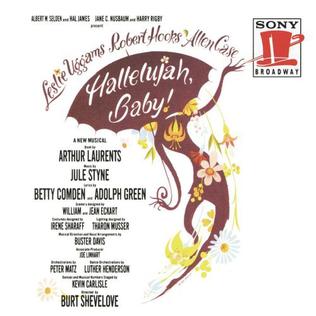
Hallelujah, Baby! is a musical with music by Jule Styne, lyrics by Adolph Green and Betty Comden, and a book by Arthur Laurents. The show is "a chronicle of the African American struggle for equality during the [first half of the] 20th century."
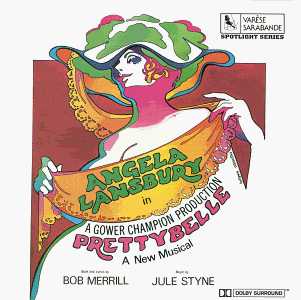
Prettybelle is a musical with a book and lyrics by Bob Merrill and music by Jule Styne. It was adapted from Jean Arnold's darkly comic novel Prettybelle: A Lively Tale of Rape and Resurrection. It starred Angela Lansbury, but never was produced on Broadway and closed in Boston in 1971.

Gentlemen Prefer Blondes: The Intimate Diary of a Professional Lady (1925) is a comic novel written by American author Anita Loos. The story follows the dalliances of a young blonde gold-digger named Lorelei Lee "in the bathtub-gin era of American history." Published the same year as F. Scott Fitzgerald's The Great Gatsby and Carl Van Vechten's Firecrackers, the work is one of several famous 1925 American novels which focus upon the insouciant hedonism of the Jazz Age.

Gentlemen Prefer Blondes is a musical with a book by Joseph Fields and Anita Loos, lyrics by Leo Robin, and music by Jule Styne, based on the best-selling 1925 novel of the same name by Loos. The story involves an American woman's voyage to Paris to perform in a nightclub.
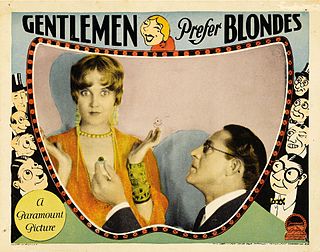
Gentlemen Prefer Blondes is a 1928 American silent comedy film directed by Mal St. Clair, co-written by Anita Loos based on her 1925 novel, and released by Paramount Pictures. No copies are known to exist, and it is now considered to be a lost film. The Broadway version Gentlemen Prefer Blondes starring Carol Channing as Lorelei Lee was mounted in 1949. It was remade into the film Gentlemen Prefer Blondes with Jane Russell as Dorothy Shaw and Marilyn Monroe as Lorelei Lee in 1953.

Lend an Ear is a musical revue with a book, music, and lyrics by Charles Gaynor and additional sketches by Joseph Stein and Will Glickman.

Elaine Stritch at Liberty is an autobiographical one-woman show written by Elaine Stritch and John Lahr, and produced by George C. Wolf, which is composed of anecdotes from Stritch's life, as well as showtunes and Broadway standards that mirror Stritch’s rise and fall both on and off the stage.
KT Sullivan is an American singer and actress known for her performances in cabaret and musical theatre.
Gertrud Rittmann was a German Jewish composer, musical director, arranger and orchestrator who lived and worked for much of her life in the United States. Her career particularly flourished with major successes in Broadway theater.

Carol Channing was an American actress, singer, dancer, comedian, and voice artist. She won the Golden Globe Award and was nominated for the Academy Award for Best Supporting Actress for her performance as Muzzy Van Hossmere in Thoroughly Modern Millie (1967). Other film appearances include The First Traveling Saleslady (1956) and Skidoo (1968). On television she has made many appearances as an entertainer on variety shows, from The Ed Sullivan Show in the 1950s to Hollywood Squares. She is also known for her performance as The White Queen in a 1985 production of Alice in Wonderland.
















